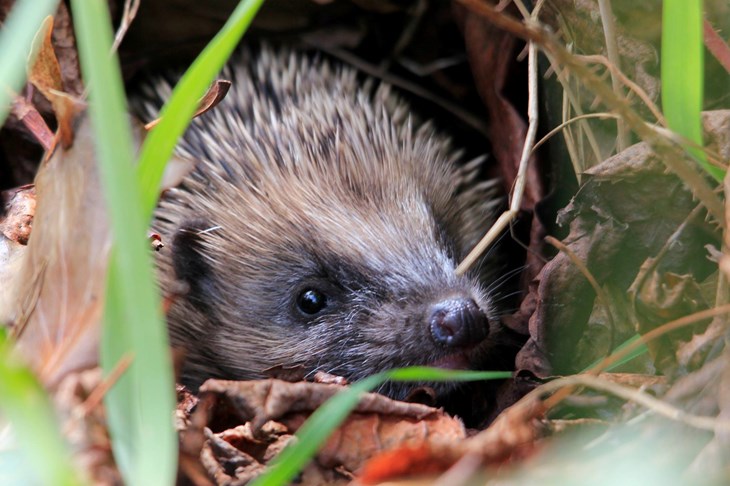Top tips for helping wildlife

Winter can be the busiest time on our nature reserves. We have a lot of tree and pond work to carry out , and we want to ensure wildlife can thrive during cold weather and that there is shelter and food for the wildlife on our reserves.
Here are our top tips for things you can do at home to help wildlife in your own garden.
Provide shelter with bird boxes, hedgehog homes and leave other undisturbed areas in your garden to make cosy shelters and habitats where wildlife can hibernate. If you’ve prepared a compost heap this year, this will make a perfect home for frogs, toads, and other animals. Remember not to disturb them until hibernation time is over in April. Hibernation may change depending on how mild Winter is.
Feed wildlife by putting out small amounts of food and help see wildlife through the cold winter weather.
Birds: seeds, suet balls, mealworms, berries or chopped up fruits (apples, pears, plums)
Hedgehogs: minced meat, tinned dog/cat food (not fish-based), chopped boiled egg
Squirrels: hazelnuts, walnuts, chestnuts, sunflower seeds, chopped carrot
Badgers: Fruit (apples, grapes, pears), peanuts, dried dog food, mealworms
Small mammals: mixed seeds
Put a shallow dish of fresh water on the ground to benefit all garden wildlife including birds. You could also invest in a birdbath to keep birds hydrated and clean.
Empty and clean bird boxes, feeders, and baths with hot water with a mild detergent, and a brush encourage good hygiene and help birds stay healthy during the Winter.
Collect fallen leaves from your lawn or patio to create leaf-mould piles and place these underneath hedges and shrubs. This can provide a safe home for hedgehogs and even insects!
Melt a hole in your pond if it’s frozen by carefully filling a saucepan with hot water and place it on your pond until a hole has been melted. This will allow wildlife to drink and enter and exit the pond. DO NOT hit the ice, as this sends shockwaves through the water and harms the wildlife that lives in it!
Make sure you check areas such as compost heaps, leaf piles, logs piles, etc. for hidden wildlife before handling them.
If you have plant, football, tennis, or other netting in your garden make sure to keep these above ground level to prevent wildlife from getting tangled.
Leave healthy herbaceous plants unpruned until early Spring, as they make perfect homes for overwintering insects.
However, if you have cut your herbaceous perennials, you can bundle the stems together and leave them in a secluded place. Ladybirds, beetles, and other small mammals will take shelter here, and will also be on hand to prevent any early pest infestations.
